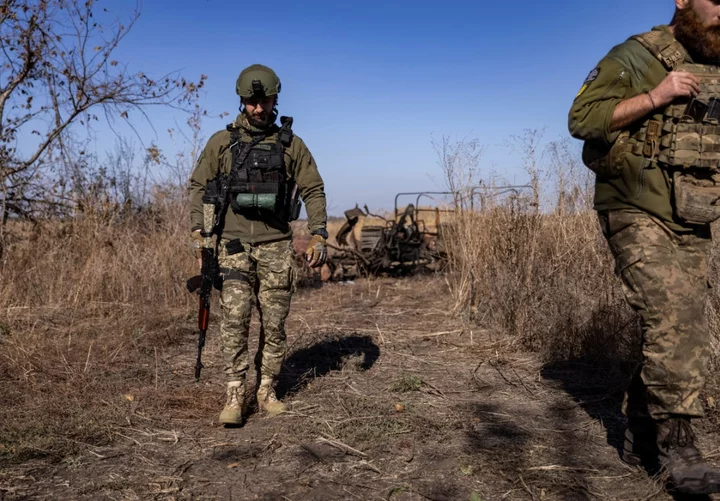
Ukraine-Russia war - live: Putin ‘loses entire brigade’ as Moscow suffer painful losses in latest battle
Russian troops have lost “at least a brigade of troops” during their latest offensive in the ruined city of Avdiivka, with Ukrainian president Volodymyr Zelensky claiming they had suffered “painful losses”. This comes as news emerged that Putin’s troops had been executed for retreating from the offensive in the eastern city in Donetsk, according to the White House. “We have information that the Russian military has been actually executing soldiers who refuse to follow orders,” White House spokesperson John Kirby told a media briefing on Thursday. Ukrainian forces have been repelling the Russian onslaught on the frontline in Donetsk for several weeks since mid-October. In a call to Rishi Sunak, Zelensky said: “The invaders made several attempts to surround Avdiivka, but each time our soldiers stopped them and threw them back, causing painful losses. In these cases, the enemy lost at least a brigade.” Meanwhile, Oleksandr Shtupun, a spokesperson for Ukraine‘s southern groups of forces, said last week that Russian forces had suffered over 400 casualties a day in its campaign which has relied on small assault groups of 30 to 40 men. Read More A Russia without Putin? Be careful what you wish for... Moscow succession: What would happen if Putin dies? Russia is executing its own retreating soldiers as Ukraine offensive fails, says US
2023-10-28 21:26
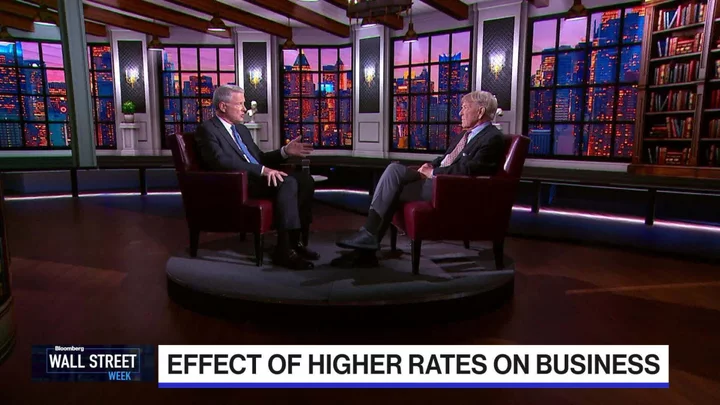
Israel Escalates Ground Operations In Gaza After Aerial Blitz
Israel is ratcheting up ground operations in Gaza with troops, tanks and artillery battling Hamas fighters after the
2023-10-28 19:25
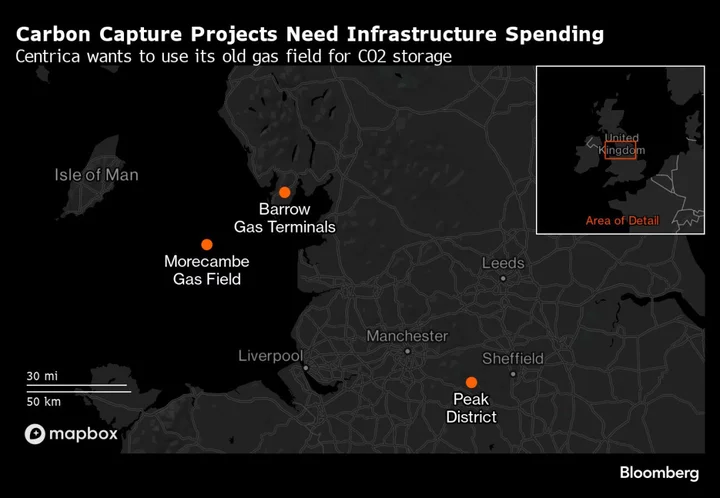
The Energy Chief Trying to Show Sunak That the UK Needs Carbon Capture
Centrica Plc boss Chris O’Shea is on a mission to show the UK government that it needs to
2023-10-28 18:50
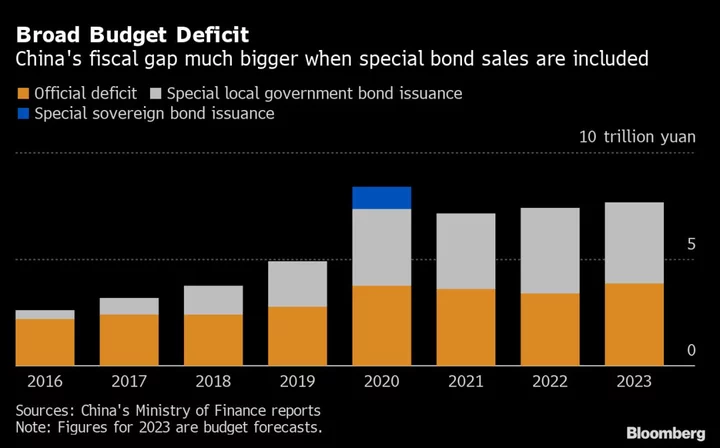
Charting the Global Economy: Inflation Picks Up in US, Tokyo
US underlying inflation picked up along with consumer spending as the third quarter drew to a close, government
2023-10-28 17:47
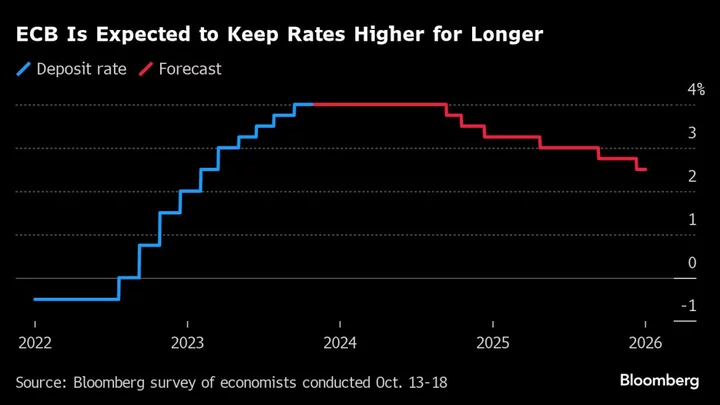
Lagarde’s Plan to Keep ECB Rates at Record Becomes a Test of Endurance
As night fell in Marrakech earlier this month, Christine Lagarde was there, busy talking to a colleague from
2023-10-28 16:16
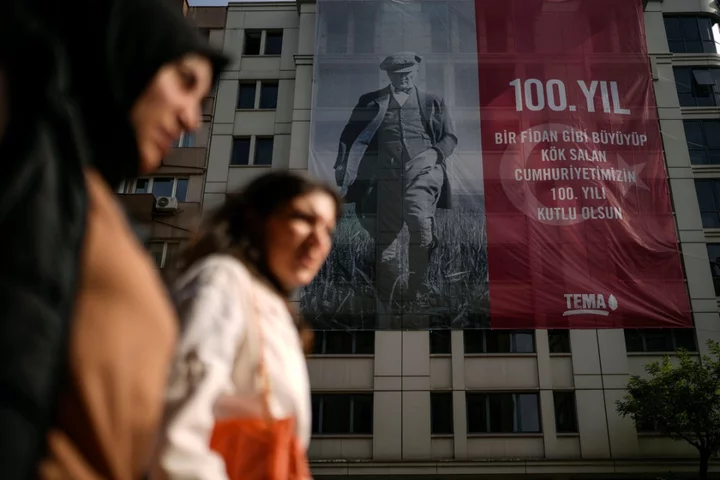
As modern Turkey turns 100, what’s next for Kemal Ataturk’s republic
The Turkish Republic, founded from the ruins of the Ottoman Empire by the national independence hero Mustafa Kemal Ataturk, turns 100 on Sunday, October 29. Ataturk established a Western-facing secular republic modeled on the great powers of the time, ushering in radical reforms that abolished the caliphate, replaced the Arabic script with the Roman alphabet, gave women the vote and adopted European laws and codes. Turkey has, however, taken on a more conservative character under the two-decade-old rule of President Recep Tayyip Erdogan, whose party has roots in the country's Islamic movement and who has become Turkey's most influential leader since Ataturk. The centennial offers Erdogan, re-elected for a third term in May, a chance to redefine the country and propel it into a new era he has dubbed “Turkey’s Century.” Here is a look at some of the republic’s greatest accomplishments, and controversial realignments as it embarks on its second century. Religious identity The secular vs. conservative debate remains one of the most contentious cultural divides in Turkey. Ataturk, the nation’s founding father, envisioned a secular country as a prerequisite to modernity. Over the decades, the separation of religion and state became a deeply ingrained ideology. The country went on to impose bans on headscarves in schools and public institutions, brought restrictions on religious education, adopted liberal policies on alcohol, and even converted the main Ottoman imperial mosque, the Hagia Sofia, into a museum. All these policies have been reversed under Erdogan, who has shifted the country toward conservatism. Now official functions open with prayers, the Directorate of Religious Affairs has been given a budget which dwarfs most ministries, the number of religious schools have increased and even Erdogan’s unorthodox economic policy of reducing interest rates - abandoned recently - was justified on religious grounds. “Ataturk was a ... top-down politician who believed in social engineering and he wanted to refashion Turkey as a secular, West-facing, European society," said Soner Cagaptay, an expert on Turkey at the Washington Institute and author of several books on Erdogan. "Erdogan, too, believes in top-down social engineering. While his method is similar to that of Ataturk, his values are almost the exact opposite.” Diplomacy The Western-oriented country joined NATO in 1952 and is officially a candidate to join the European Union - although the membership negotiations have now come to a standstill. Turkey’s interests generally aligned with those of Western countries for much of the 20th century. In recent years, however, Turkey has adopted a much more assertive foreign policy which aims to extend Ankara’s reach both regionally and worldwide. This new independent diplomacy is just as likely to pit Turkey against Western interests as it is to align with them. One recent point of tension between Turkey and the West has been in Syria, with Turkey frequently launching attacks against local Kurdish forces which Europe and the United States consider allies and Turkey considers as off-shoots of the outlawed Kurdistan Workers’ Party, or PKK. Turkey now controls large swaths of territory in Syria and speaks of creating a buffer zone along its borders with Syria and Iraq against Kurdish fighters. Following Russia’s invasion of the Ukraine, both Sweden and Finland decided to abandon their long-standing neutrality and join NATO. Yet Turkey became the main holdout against Swedish membership, accusing Sweden of being too soft toward the PKK and other groups outlawed by Turkey. Turkey’s new, pragmatic foreign policy also extends to its relations with Russia, a major trading partner. While most NATO countries took a strong stance against Moscow over its invasion of Ukraine, Ankara has maintained close ties even as it opposes the war. While impeding NATO’s cohesion, Turkey’s non-alignment does put it in a unique position where it can act as mediator in global conflicts, including the war in Ukraine. Cagaptay sees similarities in Ataturk's and Erdogan's goals of wanting to turn Turkey into a great power. But whereas Ataturk decided to embrace and copy policies of European powers of the time, Erdogan “has no interest in folding Turkey under Europe and believes he can achieve this on his own,” Cagaptay said. Defence industry Turkey faced arms embargos after its 1974 invasion of Cyprus following a coup by supporters of union with Greece, and over its military offensive against Kurdish groups. More recently the country was kicked out of a U.S.-led fighter jet program over its purchase of a Russian missile defense system that angered NATO allies. Restrictions on arms sales, however, are becoming less and less of a burden, because of Turkey’s burgeoning domestic arms industry. Turkish officials maintain that Turkey’s defense industry has grown from 20 percent domestic production to 80 percent. This “local and indigenous” production ranges from rifles and tanks to assault ships and a new fighter jet, Kaan, which is planned to fly in 2028. Turkey has also become a major exporter of arms, most notably its domestically manufactured combat drones. Turkish-manufactured drones have made it into the arsenals of many countries, including Ukraine, the United Arab Emirates, Poland and Azerbaijan. Bayraktar drones, owned and designed by the family of Erdogan’s son-in-law Selcuk Bayraktar, have proven particularly effective in the Ukraine war. Modernisation Ataturk’s reforms and drive to modernize helped pull Turkey out of the deep poverty it suffered when the Ottoman Empire collapsed. Today, the country is a member of the Group of 20 most developed nations. The Erdogan era has become synonymous with a far-reaching construction boom. Highways, bridges, tunnels, pipelines, airports, hospitals and countless residences have all sprung up around the country. This new infrastructure is such a source of pride and legitimacy for Erdogan's government that it is frequently brought up on the campaign trail. With Turkey actively encourages the construction boom, critics say the government has adopted a careless attitude toward its regulation. After a devastating earthquake in February, lax enforcement of building codes was blamed for the widespread destruction. Some of Erdogan’s more ambitious projects have also been points of political contention, from the giant palace built for the president in Ankara to smaller luxury palaces built around the country. His most ambitious proposal yet, a grand canal through Istanbul, has raised fears of harm to the environment and local ecosystem. Challenges Turkey's previous hundred years witnessed military coups, economic crises and a succession of often unstable governments. Today, it faces a host of unresolved issues, including the fight against Kurdish rebels, which has been going on for four decades and doesn’t look any closer to resolution despite daily military operations in Turkey, Syria and Iraq. Turkey's assertive foreign policy means its relations with neighbors swing violently between friend and foe. The recent shift from a parliamentary system to a presidential one further eroded checks and balances, consolidating authority in the president’s hands. Its democratic backsliding, especially since a failed coup in 2016, frequently grabs international attention and seriously endangers its bid to join the EU. Transparency International ranks Turkey 101 out of 180 countries in corruption. Reporters Without Borders ranks Turkey 165 out of 180 countries in press freedoms, down from 149 the previous year. Last year, the Economist Intelligence Unit ranked Turkey 103 out of 167 in its democracy index, classifying it a hybrid regime between an authoritarian state and a flawed democracy. In addition to all this, its economy has been facing a serious downturn in recent years, with inflation in the high double digits. Most experts forecast that inflation will be further exacerbated by the high costs of reconstruction following the earthquake that killed 50,000 people. Read More Pope Francis prays for a world in 'a dark hour' and danger from 'folly' of war Turkey’s president submits protocol for Sweden’s admission into NATO Separatist lined up to be Putin’s puppet leader in Ukraine ‘is shot in Crimea home’ Separatist lined up to be Putin’s puppet leader in Ukraine ‘is shot in Crimea home’ EU summit turns its eyes away from Ukraine despite a commitment to stay the course with Zelenskyy Russia-Ukraine war: Putin’s troops ‘executed for retreating’
2023-10-28 03:23
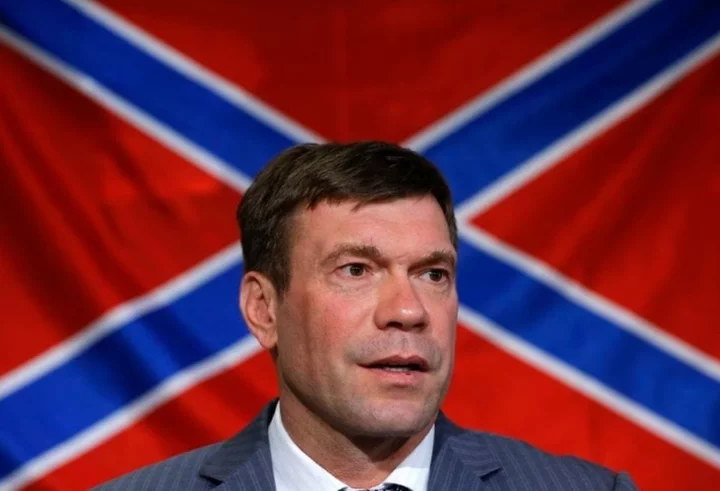
Separatist lined up to be Putin’s puppet leader in Ukraine ‘is shot in Crimea home’
A pro-Russian former politician in Ukraine is fighting for his life after being shot in his Crimea home, an official has said. Oleg Tsaryov, who was reportedly being lined to lead a puppet administration in the Ukrainian capital Kyiv after Russia’s invasion, is in intensive care in hospital, Vladimir Rogov, a Russian-installed official in southern Ukraine, said. He was reportedly shot twice at around midnight at his home in Crimea. “Oleg’s condition is very serious. He is currently in intensive care," Mr Rogov wrote on the Telegram messaging app. Sources told Reuters last year that Russia had been lining up Mr Tsaryov to head a puppet government in Kyiv after Moscow’s forces invaded on 24 February. Mr Tsaryov himself dismissed that possibility when The Financial Times reported it, citing US intelligence, ahead of the invasion. He told the paper at the time that the idea was "pretty funny" because he was just running a wellness business in Crimea and was "not important enough". Previously, Mr Tsaryov had been a member of the Ukrainian parliament and then speaker of the parliament of "Novorossiya", an entity formed after Russian-backed separatists in eastern Ukraine broke away in 2014 and began fighting Ukrainian forces. News of the shooting comes amid continued fighting on the frontline where Russian troops have been executed for retreating from key battles. US intelligence said Russian soldiers had been fleeing the frontline in the Kremlin’s offensive in the eastern city of Avdiivka, Donetsk. “We have information that the Russian military has been actually executing soldiers who refuse to follow orders,” White House spokesperson John Kirby told a media briefing on Thursday. Ukrainian forces have been repelling the Russian onslaught on the frontline in Donetsk for several weeks since mid-October. Meanwhile, the alternative Black Sea export corridor will continue to function despite all threats, Ukraine president Volodymyr Zelensky said on Friday morning. The presidential office reported that Mr Zelensky discussed the operation of the route as well as vessel insurance during a phone call with British prime minister Rishi Sunak. On Thursday, the Kyiv-based Barva Invest consultancy, British security firm Ambrey and a specialised outlet, Ukrainian Ports, reported that Ukraine had suspended use of the corridor due to a possible threat from Russian warplanes and sea mines. Additional reporting by agencies Read More War-weary mothers, wives and children of Ukrainian soldiers demand a cap on military service time Russia-Ukraine war: Putin’s troops ‘executed for retreating’ Abortion restrictions in Russia spark outrage as the country takes a conservative turn As the Turkish Republic turns 100, here's a look at its achievements and challenges ahead Russia is executing its own retreating soldiers as Ukraine offensive fails, says US White House says Russia is executing its own soldiers for not following orders
2023-10-27 22:29
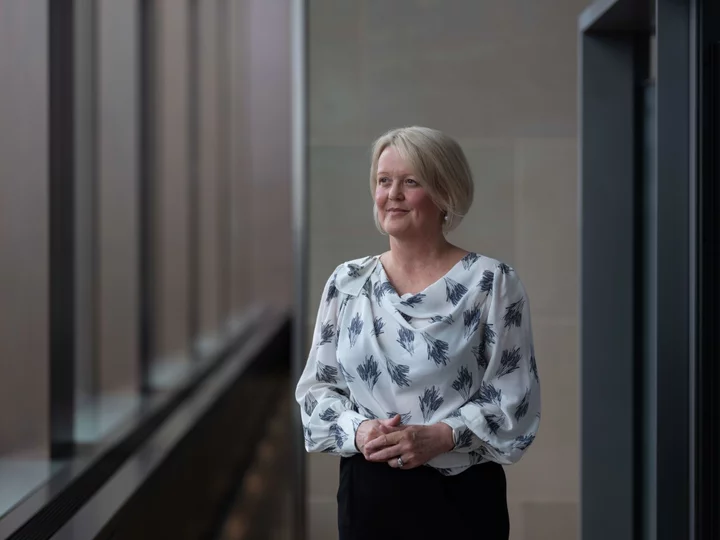
NatWest Admits to ‘Serious Failings’ in Nigel Farage Case
NatWest Group Plc said there were “serious failings” in its treatment of the Brexit campaigner-turned-television presenter Nigel Farage,
2023-10-27 17:19
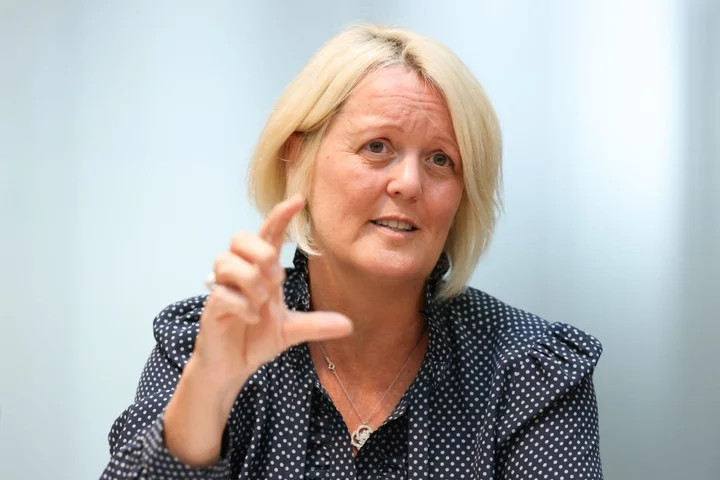
NatWest Shares Crater as Lower Margin Signals Rate Boom End
NatWest Group Plc’s shares plummeted after it cut its margin guidance, the latest UK lender to warn higher
2023-10-27 17:16
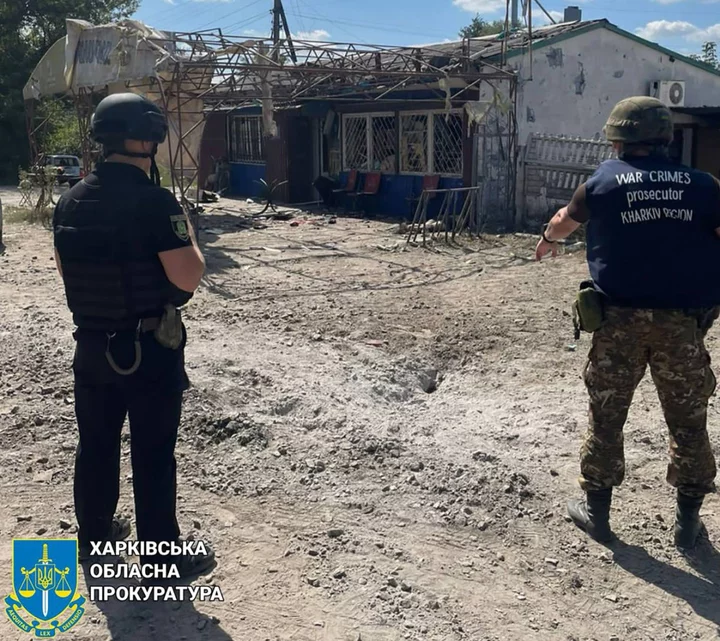
German prosecutors receive evidence regarding ‘Russian war crimes in Ukraine’
A non-governmental organisation founded by Amal and George Clooney handed over dossiers of evidence regarding Russia’s alleged war crimes in Ukraine to German federal prosecutors on Thursday. At least three cases were filed by the Clooney Foundation for Justice (CFJ) which called on the German prosecutors to investigate Russia’s actions since its full-scale invasion of Ukraine in February 2022. CFJ said in a statement: “The organisation submitted detailed dossiers against the perpetrators and is representing 16 survivors and families of victims.” One of the cases was filed jointly with CFJ’s partner, the Ukrainian NGO Truth Hounds. The foundation by barrister Amal Clooney and her actor husband George Clooney advocates for justice through accountability for human rights abuses around the world. The CFJ clarified that it submitted its plea in Germany due to the country’s application of “absolute universal jurisdiction”. German law allows the initiation of criminal investigations for international crimes committed outside of Germany, irrespective of the victims’ or perpetrators’ nationality or any other association with Germany. “International commitment around accountability for crimes committed in Ukraine has been unprecedented since the beginning of the Russian full-scale invasion of Ukraine,” said Anya Neistat, legal director of The Docket – a CJF initiative to collect evidence and build war crimes cases. “But it is now the time to see words turn into real action – and we are counting on German prosecutors to lead the way.” The CFJ said all three cases were filed “against high and mid-level commanders whom the Docket identified as likely suspects”. “The first case concerns an indiscriminate missile attack on a resort in the Odessa region, which in the summer of 2022 killed 22 civilians and seriously injured 40 more. The Docket is representing 11 families of victims and survivors,” the statement said. The second case is focused on the commanders of Russian ground forces who “unlawfully detained, tortured, and executed four men in the Kharkiv region during their occupation of the area from March to September 2022”. The third case identified the commanders of Russian units “involved in a pattern of crimes, including executions, torture, sexual violence, looting and other violations committed during the occupation in the Kyiv region in March 2022”. “While Ukrainian law enforcement agencies are doing their best to cover the unprecedented scale of war crimes committed in the country, they are overloaded and have limited options under Ukrainian law for pursuing the commanders and masterminds of the crimes,” Maryna Slobodianiuk, the head of Investigations Department of Truth Hounds, said. “We believe that by opening these proceedings, Germany can significantly contribute to the efforts of ensuring justice for all Ukrainian survivors”. “We represent survivors of torture, as well as families of people who had been executed or killed in indiscriminate attacks,” said Ms Neistat. “These Ukrainian civilians have suffered unthinkable violence, but now they are no longer victims – they chose to fight for justice, and we will be with them every step of the way.” Read More European rallies urge end to antisemitism as pro-Palestinian demonstrations continue worldwide CEO of a prominent tech conference resigns amid backlash for public statements over Israel-Hamas war How international law applies to war, and why Hamas and Israel are both alleged to have broken it UK could be legally complicit in Gaza war crimes, senior Tory MP warns Rishi Sunak Experts say Hamas and Israel are committing war crimes in their fight Putin makes first trip abroad since international arrest warrant issued
2023-10-27 14:21
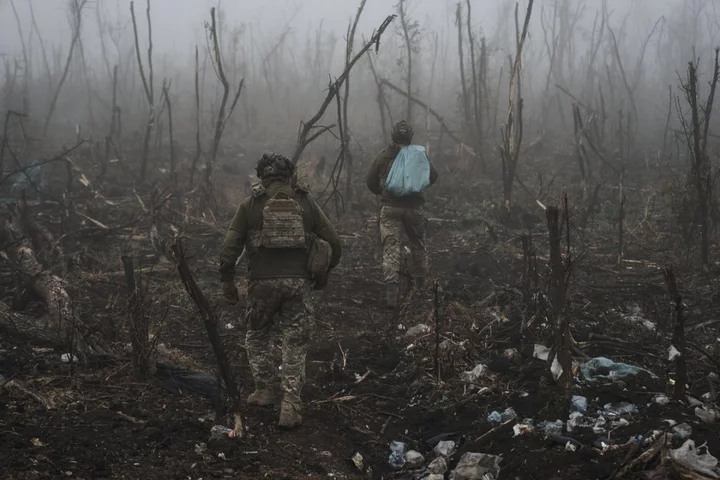
Ukraine-Russia war - live: Putin’s troops forced to regroup as they suffer heavy losses in east, says Kyiv
Vladimir Putin’s troops have been forced to regroup while suffering over 400 casualties a day in a drive to capture the eastern Ukrainian city of Avdiivka, Donetsk, Kyiv claimed. “The enemy is trying to move forward and then we beat them back,” Oleksandr Shtupun, a spokesperson for Ukraine‘s southern groups of forces, said. “So by no means can you speak of a fixed situation of some sort. Heavy fighting is continuing, though activity has subsided somewhat. The enemy is going through some kind of regrouping.” Mr Shtupun said Russian forces had suffered over 400 casualties a day in its campaign which has relied on small assault groups of 30 to 40 men. Meanwhile, North Korea has shipped over 1,000 containers of military equipment to Russia, according to the UK Ministry of Defence. It said Pyongyang was set to become one of Russia’s most significant foreign arms suppliers alongside Iran and Belarus. On Wednesday, Vladimir Putin tested Russia’s ability to launch a massive retaliatory nuclear strike as he pulled the country out of an international test ban treaty. Read More Moscow succession: What would happen if Putin dies? Russia is executing its own retreating soldiers as Ukraine offensive fails, says US A Russia without Putin? Be careful what you wish for... Putin’s many ‘heart attacks’ and why the rumours may be in his favour
2023-10-27 13:50
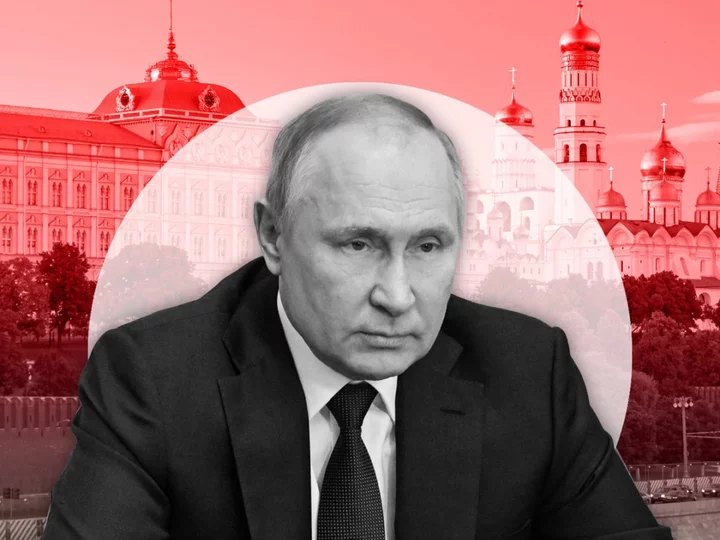
Moscow succession: What would happen if Putin dies?
Thyroid cancer, Parkinson’s disease, leprosy or declining in the aftermath of a stroke - just a few of the many unproven ailments rumoured to have afflicted the Russian leader in recent years. Just this week, the Kremlin were forced to deny rumours that Vladimir Putin had suffered a cardiac arrest in his bedroom, months after they were forced to deny that he had soiled himself. Since gripping the reins of power in 1999, Putin has established himself as one of the most infamous politicians in modern history, with a vicelike grip over Russia. His current term is set to expire next year, yet under sweeping changes to the constitution that were introduced in 2020, he could rule Russia until 2036. Yet since his invasion of Ukraine and the loss of tens of thousands of his troops, the fallout of his military gamble has caused cracks to appear for the first time under his 20-year leadership. Speculation has also dogged the ageing tyrant that his health is failing, with the future of Russia uncertain upon his demise. In June, he faced the greatest threat to his hold on power, after his former ally Yevgeny Prigozhin mounted an armed rebellion and called on his forces to march on Moscow to oust Russia’s military command. Once known as ‘Putin’s chef’, Prigozhin held great influence following the invasion of Ukraine as the owner of the Wagner private military contractor. His growing criticism of the military leadership made him a credible threat to Putin’s regime, with the dictator vowing harsh consequences for his “betrayal” and “treason”. Just two months after his aborted mutiny, Prigozhin died in mysterious circumstances while aboard a plane flying between Moscow and St Petersburg. While this dramatic opposition to the Russian leadership was swiftly quashed, it posed questions about the future of the country’s leadership, and who stands in line to replace their authoritarian leader. His family Unlike other dictators throughout history, Putin’s family are not in the running to replace him, with very few details known about their relationship with the president. Famously secretive about his personal life, his 30-year marriage to flight attendant Lyudmila Shkrebneva ended in divorce in 2013 amid speculation about his extramarital affair with retired gymnast Alina Kabaeva. While it is unknown how many children he has welcomed since the breakdown of his marriage, he had two daughters with Ms Shkrebneva, Maria Vorontsova, 36, and Katerina Tikhonova, 35. Neither have any involvement in politics, while he refuses to name his grandchildren in public, telling a reporter: “The thing is, I don’t want them to grow up like royal princes, I want them to grow up to be normal people.” During one of his rare personal interviews in 2015, he said of his daughters: “My daughters live in Russia and studied only in Russia, I am proud of them,” he said. “They speak three foreign languages fluently. I never discuss my family with anyone.” Mikhail Mishustin If Putin were to die or abruptly step down, the Russian Federation Council has 14 days to call early presidential elections. If it fails to act, the Central Election Commission would call it, while prime minister Mikhail Mishustin would serve as acting president in the interim. He is considered by some however to unlikely option to become a permanent placement, given his lack of popularity with Putin’s inner circle of ‘yes men’. According to the BBC, Mishustin had the “unenviable task of rescuing the economy but has little say over" the Russia-Ukraine war, with sources close to the Kremlin saying he was unaware of Putin’s intentions for a full-scale invasion. Speaking to The Independent, Dr Mark Galeotti said: “Constitutionally, he takes over when the president is dead or incapcitated, he would be incumbent. He’s a classic technocrat choice. I could see that happening, but there are other candidates who would fill the same niche.” Dmitry Medyedev Known as one of Putin’s closest allies, Dmitry Medvedev has been tipped as one of his potential successors. He had previously held the role of president from 2008 to 2012, before stepping aside in what was later revealed to be a prearranged deal. Once considered by the West as a moderate voice within the Kremlin, he has developed a reputation as Putin’s bad cop, referring to Ukrainians as “cockroaches” and making increasingly bellicose nuke-related threats.” The former law professor held the role of Prime Minister from 2012 to 2020, before becoming the deputy chairman of the Security Council of Russia. Over the years however, it is believed that his subservient role under Putin has weakened his own ability to consolidate power amongst Russia’s elite. Sergei Kiriyenko Other names mentioned to take the leadership helm include Sergei Kiriyenko, who has served as First Deputy Chief of Staff since 2016, and is known to be a member of Putin’s closest inner circle. With his involvement over the newly annexed Ukrainian territories, he is understood to have daily access to the president, and maintains good relations with all major key players among Russia’s political elite. Dismissing his chances of ever coming to the forefront of Russian politics however, Dr Galeotti said that he served better as a “backroom” operator. Sergei Shoigu Given the humiliating trajectory of the Ukraine war, Sergei Shoigu is no longer a likely choice to be announced as Putin’s predecessor, despite his position as one of Russia’s most influential men. The defence minister had once been voted the most popular politician after Putin, and is known to be close with the reserved leader, often spending summer vacations together. “Before the invasion, I would have absolutely said Shoigu, but his reputation has now been tarnished with the invasion,” said Dr Galeotti. “He’s still got relatively high levels of public support and trust, and he is a phenomenal behind the scenes operator. The days where he could have been president may be over but as a kingmaker, he could still be really influential.” Nikolai Patrushev The secretary of Russia’s Security Council, Patrushev has known Putin since they worked together in the KGB, and was a major strategist in both the 2014 and 2022 invasions of Ukraine. The 71-year-old is reportedly “one of the few figures Putin listens to”, while his son Dmitry has also been rumoured as a potential successor to Putin given his position as agriculture minister. Other suggestions have included Moscow mayor Sergei Sobyanin, former bodyguard Alexei Dyumin and chief of staff Dmitry Kozak. “It’s going to have to be someone who could create a coalition, who is able to be acceptable to both the technocrats and the security elite,” Dr Galeotti said. “It will quite likely not one be one of the big beasts, precisely because of the need to build a coalition.” “I think actually the Russian system will cope with the crisis quite quickly and swiftly and we’ll see the next political elite looking to end the war in Ukraine and the confrontation with the West. Putin will quite likely become the scapegoat for all that wrong.”
2023-10-27 13:29
